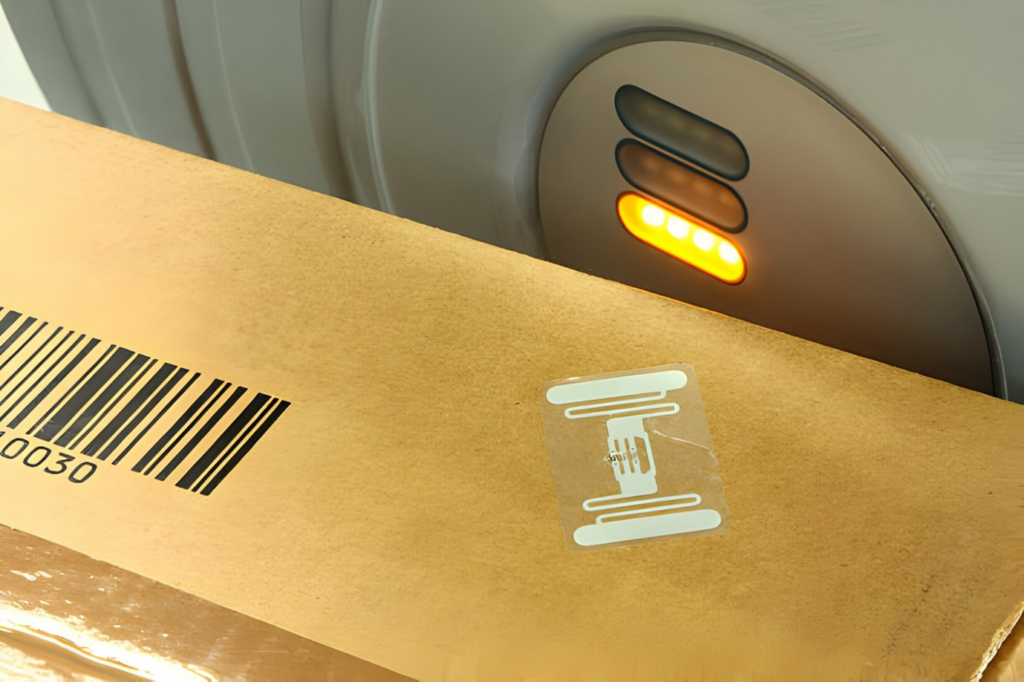
How do RFID label prevent theft and improve security?
RFID technology has rapidly changed how businesses track assets, manage inventory, and protect valuable products. RFID label is a key component of this technology and is widely used in various fields such as retail, healthcare, logistics, and manufacturing. The benefits of RFID labels go beyond improving operational efficiency; they also play a vital role in preventing theft and enhancing security. This blog post will explore how RFID labels avoid theft and improve security, helping users and consumers understand their value as an essential part of modern security systems.
RFID Label Provide Real-Time Tracking for Theft Prevention
One of the most significant advantages of RFID labels is their ability to provide real-time tracking of assets and products. With an RFID label affixed to an item, businesses can monitor its location at any time, whether within a store, warehouse or on the move. This ability to track assets in real-time significantly reduces the risk of theft, as it enables security personnel to instantly detect discrepancies between the physical location of an item and its recorded location.
When RFID labels are integrated with a centralized tracking system, businesses can create an efficient theft prevention strategy by monitoring the movement of goods in and out of a secure facility. For example, if an RFID-enabled product moves from a designated area without authorization, the system can alert security personnel, allowing them to respond immediately. This proactive monitoring helps prevent theft before it occurs, rather than relying solely on post-theft investigations.

Access control can be implemented and unauthorized movement can be restricted
RFID labels are essential for access control systems, which track and control access. Controlling who can access certain areas or products is crucial in the healthcare, logistics, and retail industries. RFID labels help regulate authorized personnel’s access to move or remove items from secure locations.
For example, RFID-enabled access control systems can lock or unlock doors, gates, or storage units. Only authorized RFID cards or tags can unlock these barriers, preventing unauthorized individuals from accessing high-value goods. Furthermore, RFID labels can also be embedded with tamper-evident features, making it clear if an item has been compromised or tampered with. This security level, which is difficult to replicate with barcodes, reduces the risk of internal and external theft.
Helps Detect Merchandise Movement and Prevent Stock Shrink in Retail
offers retail environments are prime targets for theft, both by customers and employees. Inventory shrinkage, caused by theft, damage, or error, is a significant issue for retailers globally. The RFID label offers an effective solution to shrinkage by enabling real-time tracking of each item in the store.
RFID labels allow retail managers to track products from entry to sale. RFID technology alerts store personnel instantly if an item is removed or unauthorized movement is detected. In case of a theft attempt, RFID readers positioned at exits can instantly detect when an RFID-labeled product leaves the store without being properly checked out, triggering an alarm to notify security staff. This immediate response system is more effective than traditional methods like CCTV, which may only catch theft afterwards.

Protect High-Value Assets in Industrial and Manufacturing Environments
RFID labels provide a highly secure asset-tracking method for industries with high-value assets like electronics, machinery, or pharmaceuticals. These industries are particularly vulnerable to theft and require robust security measures to protect valuable inventory. RFID labels ensure authorized personnel can access, transport, or remove high-value items.
RFID labels on machinery, tools, or parts enable security teams to track and authenticate assets in manufacturing plants or warehouses. If a high-value item is moved without authorization, the RFID system instantly alerts security personnel. Furthermore, RFID systems can be integrated with GPS or geofencing technology to create a virtual perimeter around valuable assets. If the asset crosses this virtual boundary, the system will send a real-time notification, preventing theft and loss from occurring.
Improves supply chain visibility and prevents cargo theft
Cargo theft is a significant problem in the global supply chain, particularly in industries dealing with high-value goods. Theft during transportation can occur at any stage—during loading, unloading, or while goods are in transit. RFID labels prevent cargo theft by providing real-time visibility of the shipment’s location, ensuring constant monitoring.
RFID labels allow businesses to track goods throughout the supply chain, from warehouses to trucks to the final destination. It enables shippers, manufacturers, and distributors to track shipments in real-time, significantly reducing theft risk. Additionally, RFID labels can be integrated with geo-tracking technology, allowing companies to monitor the exact route taken by shipments and ensure that goods are not diverted or stolen along the way.

Integrates with other security systems for enhanced protection
RFID labels do not operate in isolation—they are often integrated with other security measures to enhance overall protection. Many RFID systems integrate with video surveillance, intrusion detection, and alarm systems for a comprehensive security approach. This integration allows businesses to leverage the full capabilities of their security infrastructure, creating a more robust theft prevention system.
When an RFID label is detected in an ex-unauthorized area, it can trigger video surveillance cameras to record the event, providing visual evidence of the incident. Additionally, RFID systems can work in conjunction with automated alarms to alert security personnel of potential breaches. Integrating RFID technology with other security tools enhances a business’s ability to detect, prevent, and respond to theft.
RFID Label Help Ensure Compliance with Regulatory and Security Standards
Compliance with regulatory standards is essential in specific industries, such as healthcare, pharmaceuticals, and electronics. RFID tags help businesses prevent theft and ensure that regulatory requirements related to asset tracking and security are met. For example, RFID labels are used in healthcare to track medical equipment, pharmaceuticals, and patient records, ensuring that sensitive data and products are securely handled.
In the pharmaceutical industry, RFID labels help prevent the theft of prescription drugs due to their high value. RFID systems can also assist in compliance with regulations such as the U.S. Drug Enforcement Administration (DEA) or European Medicines Agency (EMA) standards. Similarly, in the electronics industry, RFID labels can ensure that high-value devices are tracked and protected from theft or counterfeiting. It helps businesses safeguard their assets while meeting industry regulations by offering an additional layer of security and compliance.

RFID Label play an essential role in modern security systems
RFID labels are no longer just a tool for inventory tracking but an essential part of modern security strategies. With the ability to provide real-time monitoring, unauthorized access, detect theft, and improve overall operational efficiency, RFID labels are an indispensable resource for businesses looking to improve security and reduce losses. From retail stores and warehouses to healthcare facilities and industrial manufacturing sites, RFID labels help prevent theft and enhance asset protection. Their versatility and adaptability allow them to be used in various industries, making them one of the most effective anti-theft solutions.


